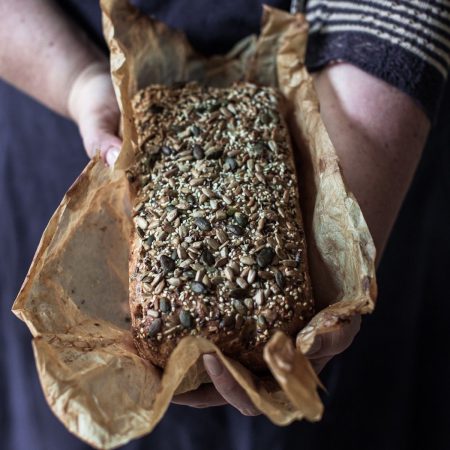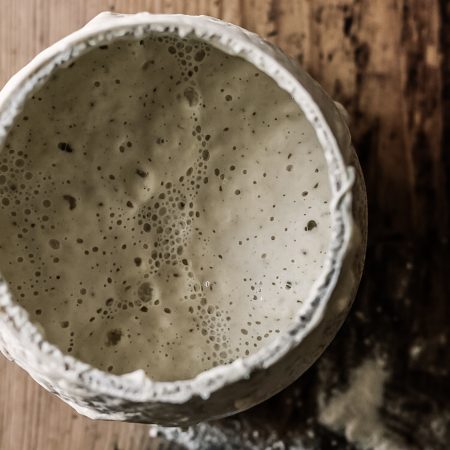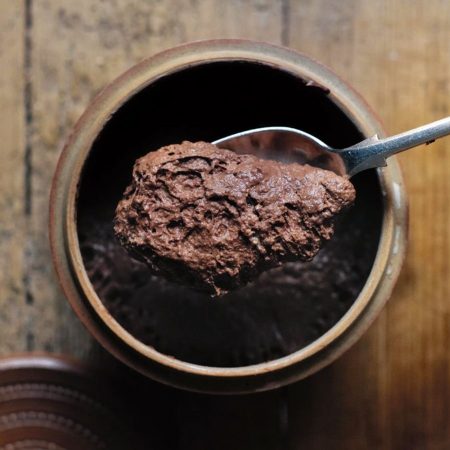
Fermenting bread increase these soluble fibres such as resistance starch
Resistant starch appears to confer considerable health benefits related to inflammatory bowel disease and bowel cancer, reduction in postprandial glycemia, improvement in insulin sensitivity, satiety, and plays a prebiotic role.
Resistant starch behaves like both insoluble and soluble fiber. Much like insoluble fiber, it’s “resistant” to digestion and so it passes into the colon undigested, but once there, it behaves like soluble fibre and is fermented (digested) by the good bacteria in the large intestine, resulting in the production of short-chain fatty acids (SCFA). The amount of resistant starch formed during the processing of foods (mainly starchy foods) is controlled by a number of factors such as water content, pH, heating temperature and time, number of heating and cooling cycles, freezing and drying. Sourdough breads for example showed the highest content of RS compared compared to breads baked with S. cerevisiae. This is in accordance with Brighenti et al. who observed RS content 20–30% higher in sourdough products when compared to breads traditionally baked with S. cerevisiae. Accordingly, Liljeberg et al. (1996) observed a similar increase in resistant starch in sourdough breads and the increase in RS content in sourdough breads was attributed to the concentrations of lactic acid. This leads to the hypothesis that the presence of organic acids in bread may lower the pH and thereby increase starch retrogradation and RS content. Starch retrogradation is simply the re-arrangement of starch molecules to form a more complex structure (i.e crystalline structure) which can only be broken down by our gut microbes that release specific enzymes.




Leave a Reply